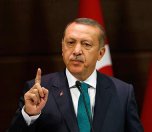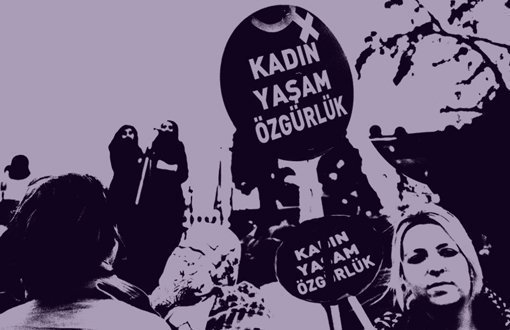Click to read the article in Turkish
Trans. Social Policies, Gender Identity and Sexual Orientation Studies Association (SPoD LGBTI) transfers Municipal Equality Index project to Turkey.
SPoD, which builds a bridge between local governments and LGBTI activists, aims to highlight the practices performed by LGBTI friendly municipalities by using this index and encourage LGBTI friendly practices across Turkey in the long run.
Municipal Equality Index, (MEI), which has been in practice in the US for five years, is now spread across 506 cities. The index evaluates the extent to which the municipalities include LGBTIs in the law, policies and practices. Anti-discrimination laws, the assessment of the municipality as an employer, the level of inclusion of services, the law enforcers and of course the public stances of the mayors regarding equality are points of evaluation. Scores are given based on the criteria defined under these headings. Every year a report card is given according to their level of compliance with these criteria and those which get high scores are rewarded.
In the meeting of the partners of the project the criteria of Municipality Equality Index Project planned to be applied in Turkey were discussed, with the participation of Ankara Çankaya Municipality, Bursa Nilüfer Municipality, Çanakkale Municipality, Eskişehir Metropolitan Municipality, İstanbul Şişli Municipality, İstanbul Kadıköy Municipality, İstanbul Beylikdüzü Municipality, İstanbul Beşiktaş Municipality, İzmir Karabağlar Municipality and Mersin Akdeniz Municipality.
5 Municipalities that Signed LGBTI Friendly Municipality Protocol
Since it was founded, SPoD has been conducting studies for the local governments to include LGBTIs. The association had prepared the LGBTI Friendly Municipality Protocol before the local elections of March 30, 2014 and the protocol was signed by 40 mayor candidates from BDP, CHP, DSP, HDP and TKP. Currently there are five municipalities which have signed the protocol: CHP's Istanbul Kadıköy, Beşiktaş, Şişli Municipalities and Bursa Nilufer Municipality, DBP's Mersin Akdeniz Municipality. (Akdeniz Municipality was appointed a trustee on December 18 and its Equality Unit and all its activities were halted.)
"Equality Index is a road map"

SPoD project coordinator Neyir Zerey says that Municipality Equality Index Project can be considered as a continuation of the protocol prepared before the local election and she adds:
" The number of municipalities which are active on LGBTI related issues is actually more than five. Aside from that, there are municipalities that would like to do something about the issue but has not carried out any activities yet and does not know how to proceed.
" The evaluation criteria on the index is a road map, an action plan. After that the argument 'We want to do something but do not know how' will cease to be."
What are the potential criteria?
The work on Municipality Equality Criteria continues, currently the criteria are listed under four main headings:
Under the heading "Institutionalization of awareness" there are over ten criteria such as trainings inside and outside the institution, the inclusion of the terms of gender and sexual orientation in the strategic plans, the preparation of the budgets with regards to LGBTI needs, the acceptance of the anti-discrimination rules by the companies that are employed by the municipalities, and establishing Equality Units.
Criteria such as relations with LGBTI community and associations, support for special days and commemorations are listed under "LGBTI Presence in Participatory Municipality".
Under the heading "LGBTI Awareness in Services", there are articles on the facilitation of the LGBTIs' access to services.
The last title is "Public visibility, reputation and esteem". These are criteria such as sharing messages to increase the recognition and visibility of the LGBTIs and using billboards and others outdoors screens for gender equality.
Rainbow Cities Network
İstanbul Beşiktaş Belediyesi ve İstanbul Şişli Belediyesi. There are currently two municipalities which are members of the network: İstanbul Beşiktaş Municipality and Istanbul Şişli Municipality.
Gizem Aykanat from Equality Unit of Beylikdüzü Municipality
Equality Unit was recently established in our municipality. Right now we are working more on women's issues. We directed our attention on these issues in our action plan and as "disadvantaged groups" in our regulations. Surely there is a concern about getting reactions, we have already experienced problems with our partners and our own employees while talking about male-female relationships and had some obstacles. We listened to Nilüfer Municipality's experiences in the meeting, and they told us that they went to the schools, and that they have received both positive and negative reactions on the work they did with LGBTIs. This motivated us. From now on we will focus more on LGBTI issues and try to work with the articles in the index.
Çankaya Municipality Women and Family Services Director Asiye Ülkü Karaalioğlu
We scheduled activities regarding the LGBTIs in our municipality's Local Equality Action Plan. But we are a new directorate. This meeting has been very productive on communication and planning what we can do by looking at what is happening at other municipalities. Each criteria is a task on its own. Now we know what we need to do. This has been a road map for us. I think it's practical, though we might need to spend some time with higher administrations. If we give them training first, maybe our task will be easier.
Ali Sevilen from Equality Unit of Bursa Nilüfer Municipality
Equality Units are not very active in Turkey unfortunately. We are trying our best to be active together with Şişli, Beşiktaş, and Mersin Akdeniz Municipalities. We believe that working only on gender equality is futile, and we don't think it's possible without the LGBTI work. The LGBTI movement is actually a milestone for gender equality, the vegan-vegetarian movements, anti-discrimination and the anti-violence struggle. The Index Project is very valuable. The equality work in municipalities should become a policy so that these activities can continue even when the administration changes. (ÇT)
*Translated by lgbtinewsturkey.com









.jpg)



